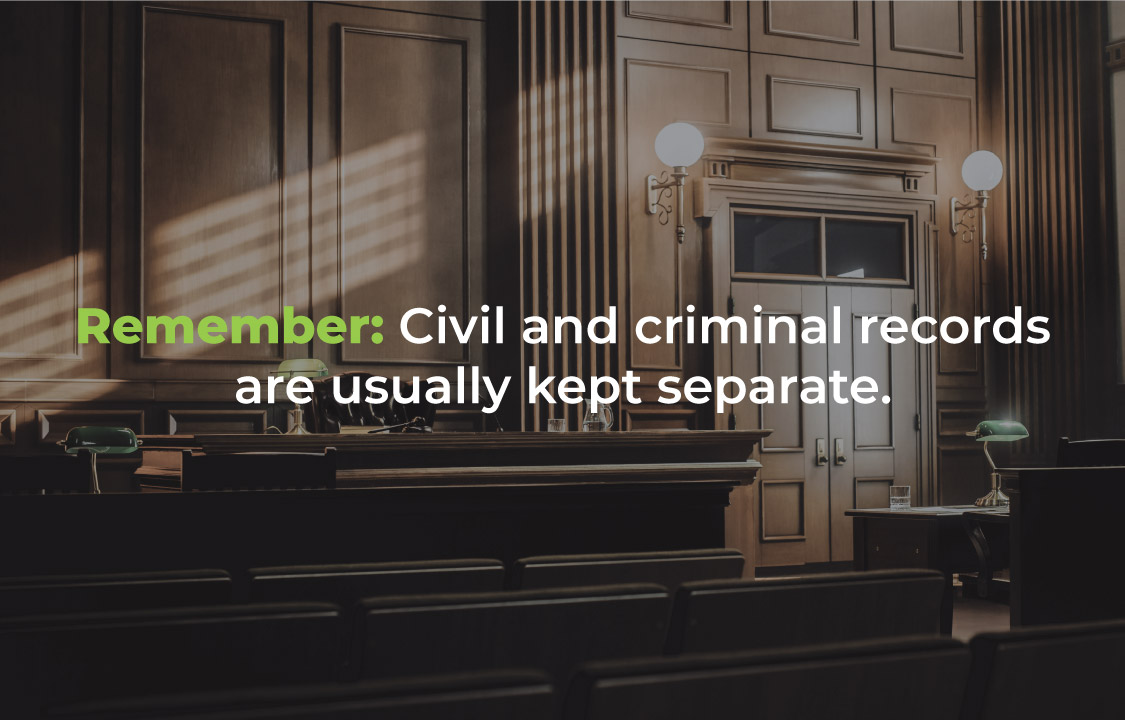Background screening certainly has its complexities. However, the basics don’t need to be complicated.
Once an understanding of some general offerings is achieved, employers can better ensure they are receiving a screening solution that fits their needs as they assemble the next generation of talent for their workplace. While non-standardized search names and clever product mixes can obscure the clarity, the truth is that most screening providers utilize many of the same sources to obtain information. They just have unique ways of presenting their offerings to customers.
Every employer conducting background checks on prospective hires should know precisely what they are being provided and should expect transparency in the information they receive.
Here is a breakdown of the most common background screening services without any frills or confusion. While this isn’t an exhaustive list, these services cover the vast majority of screening needs.
Criminal Screening Solutions
Note: Criminal background checks can show more than just conviction records. Arrest, dismissed, and pending records can be legally reportable depending on the jurisdiction.
Original Source vs. Database Criminal Record Searches
Criminal databases are among the most common information sources in background screening and can be tremendously valuable in casting a wide net, quickly and reliably. However, databases are an aggregate of information from many different sources and aren’t considered original sources for criminal records. An original source for criminal information would be a courthouse where charges are processed and housed. Courthouses often report their information to criminal databases, which can be accessed instantly.
For employment purposes, criminal records found in a database search must be verified at the original source (usually the county) level to be legally reportable under the FCRA.
County Criminal
This is a jurisdictional direct search of the court records in any one of the more than 3,000 counties in the United States. Access to these records is relatively fast and provides the most up-to-date information possible. Cases held at the county level encompass felonies, misdemeanors, and criminal traffic offenses.
Federal Criminal
Records at the federal level may uncover potentially important criminal information that was not prosecuted or recorded at the county or state level. For more information, refer to this article, which outlines common misconceptions about federal records.
National Database
This is a comprehensive search of multiple criminal record sources, including federal fugitive files, state and county criminal record repositories, prison parole and release files, sex offender records, and records from all 50 state sex offender registries. This criminal search provides access to millions of criminal conviction records nationwide.
Statewide Database
This solution is typically just a subset of the national database search.
Staewide Respository
Some states have dedicated record repositories that provide accurate information that can be accessed quickly. Such repositories can expand the scope of criminal searches beyond county-level searches. Again, not all states have a dedicated repository. This search is distinct from the more common statewide database search mentioned above.
A Note on Fingerprint Screening
Fingerprint background checks vary from name-based background checks in several ways. Apart from fingerprints being the identifier linking an individual to existing records and not other identifiers such as name, DOB, and SSN, fingerprint background checks search a database maintained by the FBI. This is a different source of information than what is used for name-based checks.
It is important to note that an FBI database isn’t necessarily more comprehensive than a name-based database. In fact, name-based databases often contain more up-to-date information due to the diligence of the county courthouses reporting to them. The vast majority of private sector employers use name-based screening; however, fingerprinting has its applications, typically in the public sector.
For more information on fingerprinting versus name-based background checks, please refer to this article.
Civil Records
Note: Civil records are typically kept separate from criminal records, processed through different legal systems with distinct procedures. Civil records must be deliberately searched in order to obtain civil information.
Common examples of civil cases in business include breach of contract, libel/slander, malpractice, poor treatment of personnel, and workplace injuries, among others.
Common examples of civil cases among individuals include property damage, negligence resulting in personal injury, disputes over ownership rights, divorce, debt collection, liens, and judgments.
County Civil
This is a search of the county civil records within a specific county.
Federal Civil
This is a search of civil records processed in federal courts. Such cases include civil rights violations, disputes among parties in different states, bankruptcy cases, patent/copyright cases, and more.
Verifications
Note: While AI solutions are emerging, manual outreach remains arguably the most effective and thorough method for verifying references.
Education
This is a direct verification of an individual’s claim of academic achievement typically the highest degree earned), including dates of attendance, year of graduation, major course study, degree or diploma earned, GPA (if provided), and any notable achievements or awards. Information is obtained directly through an applicant’s educational institution or a valid third-party provider for the institution.
Employment
This solution requires contact with a supervisor, the human resources department, or a valid third-party provider for an individual’s former employer. Information regarding the individual’s employer (current or past), dates of employment, job title(s), job performance, reason for leaving, eligibility for rehire, and other pertinent job-related details can also be gathered.
Personal Reference
This solution requires direct contact with individuals who know the candidate outside of a work setting. Personalized questions are asked to assess character, personality, and overall suitability for a role.
Professional Reference
Professional references are similar to personal references; however, the individual listed is someone who has worked with the candidate in a professional capacity.
Here is an article that explores some helpful questions to include on your personalized verification questionnaire.
Social Media
According to reports, millennials are the most active demographic on social media, with nearly 70 percent estimated to be using social media in 2025. However, usage continues to grow across all demographics, including those 65 years old and older.
For this reason, social media searches have become a relatively common part of a pre-employment background check. Some employers conduct contingency social media screens. This is a tiered process that involves a more comprehensive background check, pending the results of an initial social media screening.
Occupational Health Services
Note: Occupational health screening encompasses far more than drug screening. For more information on solutions, please refer to this article.
Drug Screening
Drug screening is a wide-ranging solution. Explore our answers to some common drug testing questions.
Other Services
Explore this guide to additional occupational health screening services.
International Screening
The scope, cost, and turnaround time of an international background check depend heavily on the country or territory. However, most countries provide some level of visibility into criminal records.
Credit Reporting
While a credit score serves as a general financial metric, it tells only part of the story. When it comes to financial screening for employment, a credit score is not provided. However, more in-depth information can be found, such as:
- Bankruptcy information
- Leins/judgments
- Past-due balances
- Percentage of available credit
- Highest credit extended
- Balances
- More
Summary
A standard pre-employment criminal screening solution typically begins with a nationwide criminal database search and one or more county-level searches. This solution can be further expanded to include other services. For this reason, a background check can cost anywhere from around $10 to several hundred dollars, depending on its complexity. Thus, there is no one-size-fits-all solution for employment screening.
When speaking about tenant or eligibility screening, such as screening for sports officials, the product scope and requirements can vary slightly from employment screening. However, these same solutions are utilized.
Some providers will combine two or more of these services and offer them as a single package, or break up information sets obtained from a single source and price them separately in order to maximize an offering. This can sometimes be seen when utilizing most nationwide database products, which, in addition to criminal information, often include sex-offender registry information, terrorist watchlist information, and more.
Ultimately, most screening companies can cover all the same bases. It’s in areas such as customer support, time service, cost, technology, and compliance, where the significant differences lie.



